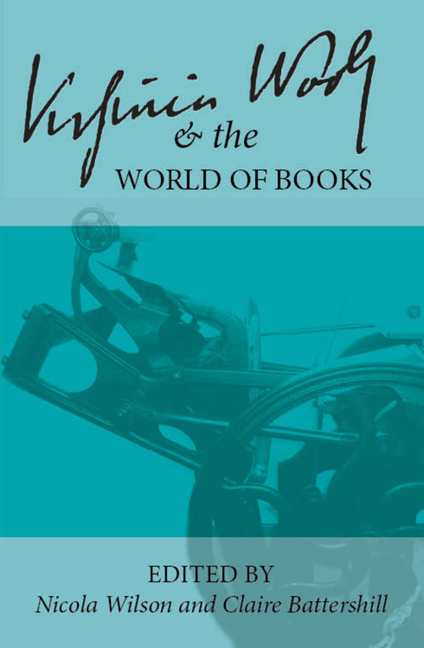 Virginia Woolf and the World of Books
Virginia Woolf and the World of Books Book contents
- Frontmatter
- Contents
- Introduction
- List of Abbreviations
- Keynote
- In the Archives
- A Voice in the Archives: In Search of Woolf's Lost Tape
- On Manuscripts: Virginia Woolf and Archives
- Echo's Voices: Virginia Woolf, Irena Krzywicka, and The Well of Loneliness
- Craftsmanship
- The Hogarth Press
- Hours in A Library
- The Art of the Book
- The Art of the Narrative
- Making New Books: Creative Approaches
- The Book in the World: Woolf's Global Reception
- Editing and Teaching Woolf
- Intertextuality
- Lives in Writing
- Notes on Contributors
Echo's Voices: Virginia Woolf, Irena Krzywicka, and The Well of Loneliness
from In the Archives
- Frontmatter
- Contents
- Introduction
- List of Abbreviations
- Keynote
- In the Archives
- A Voice in the Archives: In Search of Woolf's Lost Tape
- On Manuscripts: Virginia Woolf and Archives
- Echo's Voices: Virginia Woolf, Irena Krzywicka, and The Well of Loneliness
- Craftsmanship
- The Hogarth Press
- Hours in A Library
- The Art of the Book
- The Art of the Narrative
- Making New Books: Creative Approaches
- The Book in the World: Woolf's Global Reception
- Editing and Teaching Woolf
- Intertextuality
- Lives in Writing
- Notes on Contributors
Summary
“Every burned book or house enlightens the world; every suppressed or expunged word reverberates through the earth from side to side,” announced Ralph Waldo Emerson in his essay “Compensation” (299). This dream of global solidarity has come true for Radclyffe Hall's The Well of Loneliness, one of the first novels with an undisguised lesbian/transgender theme. When in 1928, Sir Chartres Biron judged the novel obscene and all copies were burned, it seemed probable that novel would perish. Indeed, The Well was not published in Britain again until 1949 (Doan and Prosser 1–3). Nevertheless, not only did Hall's novel survive the destruction and censorship, but it traveled across countries and continents, both in the original version and in numerous translations.
While Hall's trial has become one of the most studied events in British LGBTQ history, the fascinating story of The Well's early global reception has remained unwritten, despite fruitful areas of research enabled by the transnational turn in modernist studies. Already in 1929, the novel became a bestseller in the United States, and was translated into Danish and German. In 1931, The Well was available in Czech, a year later in French, and in 1933 it entered Polish culture under the title Źrodło samotności (see Figure 2, on next page). In this paper I would like to compare the reception of Hall's novel in Britain and Poland, juxtaposing two important statements by public intellectuals: Virginia Woolf 's A Room of One's Own and Irena Krzywicka's preface to Źrodło. I argue that the Polish reception casts some light on how The Well became the “bible of lesbianism” in different cultures for at least half a century, while also revealing new networks of transnational modernism.
Although many factors are responsible for the global popularity of Hall's novel, there are two most likely explanations. First, The Well is an emancipatory landmark and an important legacy to the LGBTQ community, raising issues still relevant in the debates on LGBTQ rights such as minority stress and marriage equality. Moreover, its hero(ine) Stephen Gordon becomes an Every(wo)man, rendering the diverse faces of LGBTQ people, oscillating between the contemporary concepts of transgender, gender queer and lesbian identity.
- Type
- Chapter
- Information
- Virginia Woolf and the World of BooksSelected Papers from the Twenty-seventh Annual International Conference on Virginia Woolf, pp. 31 - 38Publisher: Liverpool University PressPrint publication year: 2018


